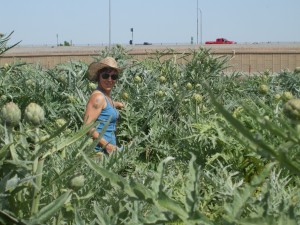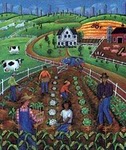Apocalypse Not Now
In Search of a New Beginning … Before the End
by Randall Amster
Undertaking even a cursory review of the news queue evidences the apocalyptic overtones in our collective midst. In the most recent additions to the canon, 2010 ended with semi-sardonic coverage of the so-called “Snowpocalypse†and its aftermath, and  2011 began with perplexed musings over the “Aflockalypse†in which birds and fish seem to be dying in odd ways due to mystifying causes. Not long before, we had the perceptive invocation of the “Shopocalypse†by Reverend Billy and the Church of Stop Shopping, and next year’s 2012 allusions promise to spawn a new generation of nomenclatural evolutions.
2011 began with perplexed musings over the “Aflockalypse†in which birds and fish seem to be dying in odd ways due to mystifying causes. Not long before, we had the perceptive invocation of the “Shopocalypse†by Reverend Billy and the Church of Stop Shopping, and next year’s 2012 allusions promise to spawn a new generation of nomenclatural evolutions.
While we may be tempted to dismiss the suffix “-ocalypse†being deployed much like “-gate†as an all-purpose distortion device, on another level we can also perceive that its very utilization as both a linguistic tool and interpretation of concrete outcomes is telling about the times in which we live. We’re actually in good company on this, at least historically speaking, as the sense of looming apocalypse has been woven into the fabric of Western civilization since its earliest days of recorded reckoning. And there certainly has been no shortage of cataclysmic harbingers in the modern era, from the inception of cinema itself to the invocation of the “mushroom cloud†as part of political theater. This is, in short, our cultural talisman, and its influence upon us is palpable. (more…)




